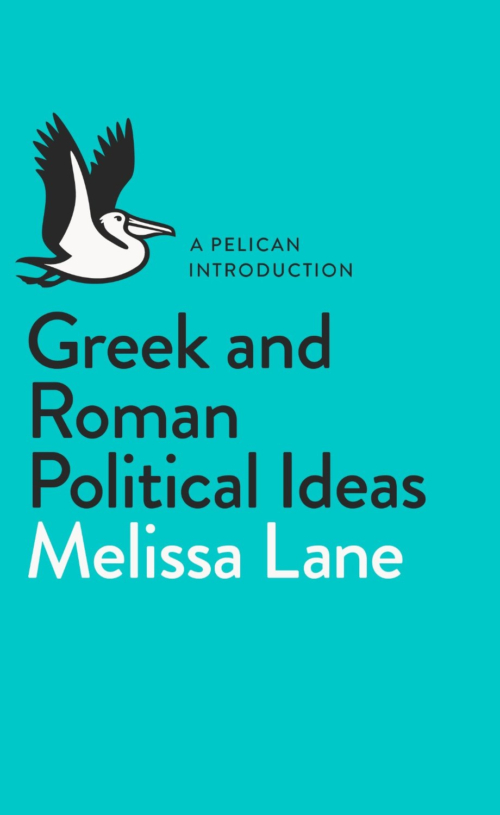Professor Melissa Lane

Professor Melissa Lane
Melissa Lane is the Class of 1943 Professor of Politics at Princeton University, and director of the University Center for Human Values. She previously taught political thought at the University of Cambridge, where she was a Fellow of King's College. She has received a Guggenheim Fellowship in the field of classics, and the historian Richard Tuck called her book Eco-Republic "a virtuoso performance by one of our best scholars of ancient philosophy."
Books
Greek and Roman Political Ideas: A Pelican Introduction
Rights
Synopsis
In Greek and Roman Political Ideas, acclaimed classics scholar Melissa Lane introduces the reader to the foundations of Western political thought, from the Greeks, who invented democracy, to the Romans, who created a republic and then transformed it into an empire. Tracing the origins of political philosophy from Socrates to Cicero to Plutarch, Lane reminds us that the birth of politics was as much a story of individuals as ideas.
Eco-Republic: What the Ancients Can Teach Us about Ethics, Virtue, and Sustainable Living
Rights
Endorsements
To deploy Plato may seem one of the more desperate strategies for saving the planet. Classical Athens had no inkling of environmental catastrophe, and Plato hated democracy. But in Eco-Republic Melissa Lane succeeds wonderfully not only in separating the useful in Plato from the useless, but also in demonstrating that the useful contains a surprising amount of what we need if we are to survive. . . . Lane demonstrates that the humanities, so far from being negligible, can play a vital role in averting environmental catastrophe.
Synopsis
An ecologically sustainable society cannot be achieved without citizens who possess the virtues and values that will foster it, and who believe that individual actions can indeed make a difference. Eco-Republic draws on ancient Greek thought--and Plato's Republic in particular--to put forward a new vision of citizenship that can make such a society a reality. Melissa Lane develops a model of a society whose health and sustainability depend on all its citizens recognizing a shared standard of value and shaping their personal goals and habits accordingly. Bringing together the moral and political ideas of the ancients with the latest social and psychological theory, Lane illuminates the individual's vital role in social change, and articulates new ways of understanding what is harmful and what is valuable, what is a benefit and what is a cost, and what the relationship between public and private well-being ought to be.
Eco-Republic reveals why we must rethink our political imagination if we are to meet the challenges of climate change and other urgent environmental concerns. Offering a unique reflection on the ethics and politics of sustainability, the book goes beyond standard approaches to virtue ethics in philosophy and current debates about happiness in economics and psychology. Eco-Republic explains why health is a better standard than happiness for capturing the important links between individual action and social good, and diagnoses the reasons why the ancient concept of virtue has been sorely neglected yet is more relevant today than ever.




